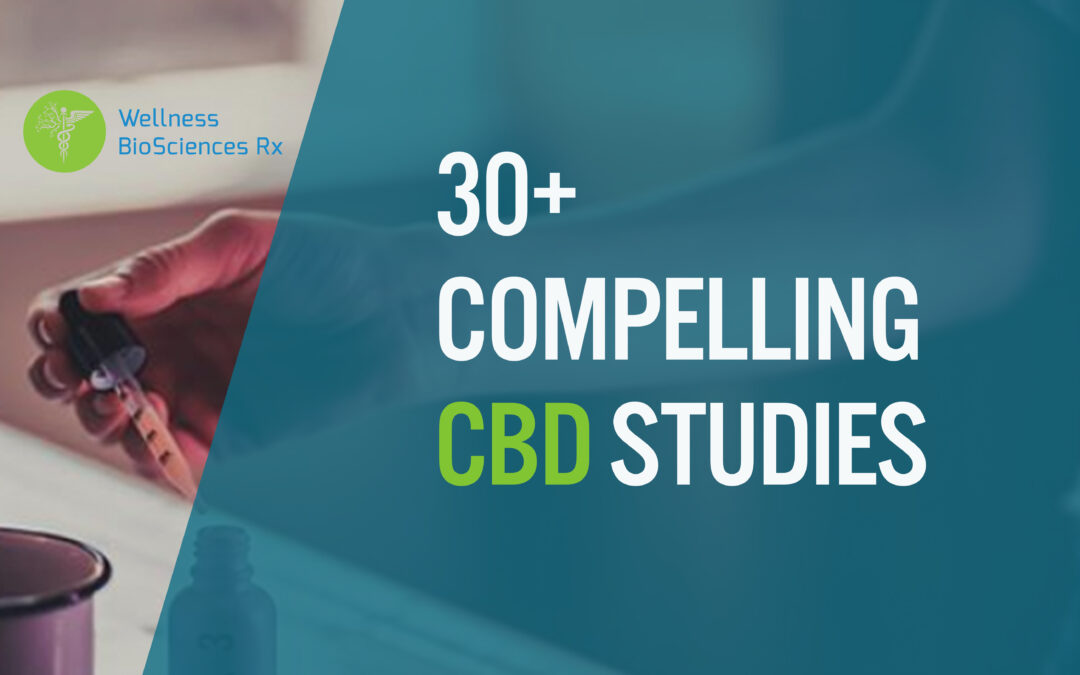Cannabidiol (CBD) oil has quickly risen in popularity as an alternative medicine for a wide variety of ailments.
Unfortunately, there is a lot of misinformation out there on this relatively new drug.
To help you sort out right from wrong, cbdcentral.com has compiled the 20 most compelling studies on CBD—ranging from the benefits of CBD to the potential side effects it may have.
Most of the information out there on CBD is written by companies trying to sell you something, for scientific journals, or by trendy sites only interested in this week’s buzzword. Their goal is to provide the most accurate information about CBD and do the research so you don’t have to. Read more here.
Now then, let’s dive in!
__
AN OVERVIEW OF WHAT WE KNOW ABOUT CBD SO FAR
A recent overview of CBD studies done on February 7th, 2019 took a look at everything we know about CBD studies so far—good and bad—to see what’s known versus what needs more research. (1)
They found that:
“On the Internet, CBD has been touted for many ailments for which it has not been studied, and in those diseases with evaluable human data, it generally has weak or very weak evidence. The control of refractory seizures is a clear exception, with strong evidence of CBD’s benefit. Acute CBD dosing before anxiety‐provoking events like public speaking and the chronic use of CBD in schizophrenia are promising but not proven. CBD is not risk-free, with adverse events (primarily somnolence and gastrointestinal in nature) and drug interactions. CBD has been shown to increase liver function tests and needs further study to assess its impact on suicidal ideation.”
In other words, CBD has definite evidence in the control of refractory seizures where other medicines have proven ineffective, such as certain forms of epilepsy (which we’ll cover more deeply in another section below).
Some other things that are promising but need further testing:
- Small doses of CBD can help lower anxiety
- Long-term CBD use may combat schizophrenia
- Using CBD to treat pain/spasticity andParkinsondisease
Finally, the overview looked at the side effects of CBD. Previously, it was thought that CBD side effects were virtually non-existent, but new research shows that CBD may cause drowsiness and/or IBS (Irritable Bowel Syndrome; stomach aches).
Further backing up these findings is a 2018 study, which found that:
“CBD was shown to have anxiolytic, antipsychotic, and neuroprotective properties. In addition, basic and clinical investigations on the effects of CBD have been carried out in the context of many other health conditions, including its potential use in epilepsy, substance abuse and dependence, schizophrenia, social phobia, post-traumatic stress, depression, bipolar disorder, sleep disorders, and Parkinson.” (2)
We’re going to cover studies from most of the benefits mentioned here throughout this article.
Click the button below to read the entire post from CBDcentral.com. Visit the links at the bottom of this page to jump straight to the specified topics.
About Wellness BioSciences Rx (WBRx)
Wellness BioSciences Rx (WBRx) is a global innovator in the delivery of science-based wellness consumables in partnership with health care providers directly to their respective patient base. Our products specialize in the development of the highest grade 100% USA-grown hemp oil rich in CBD, CBDA, CBG, CBN, CBC, and terpenes. WBRx was founded by Barry Cocheu and Sean Baker.

